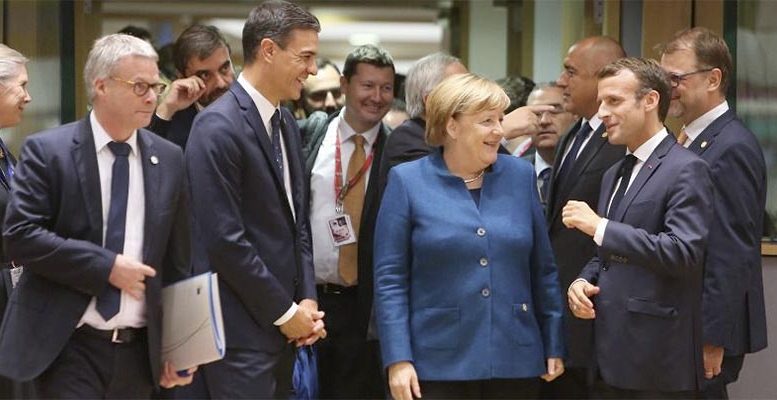Lidia Conde (Frankfurt) | Germany takes over the rotating presidency of the European Union Council from July. The other member states’ expectations are high. All the dimensions of the health, social and economic impact of the coronavirus are still unknown. But we know that the consequences could be immense. The hope is that the European recovery fund, proposed by France and Germany, will succeed. It is an ambitious plan, but with many obstacles. “All together to relaunch Europe” is the German Presidency’s motto and one which is not just words. Germany and its Chancellor Angela Merkel are committed to it. The fund, worth 750 billion euros to be distributed over two years, would be channelled to governments through direct transfers (500 billion euros) and loans (250 billion euros). Spain would be the country to benefit most after Italy.
Will this be enough to fight the crisis caused by the pandemic in the EU? Not for the president of the German Bundestag, Wolfgang Schäuble. When he was Finance Minister during the 2010 financial crisis, Schäuble already wanted more EU integration, a European economic government. “We can’t miss the opportunity again now, but instead take advantage of the current disruptive situation to create an economic union from the current monetary union,” he suggested on July 6 in the daily Frankfurter Allgemeinen Zeitung (FAZ).
For now Germany’s priorities for its presidency are the right ones: to shape a modern, strong Europe in the face of future crises. As the President of the European Parliament David Sassoli says, Merkel’s mission is to fulfil the motto of former chancellor Helmut Kohl: “We don’t need a German Europe, but a European Germany.” In an interview in the Süddeutsche Zeitung at end-June, Merkel acknowledged that “the current crisis adds to the two great disruptive challenges of our time: climate change and digitalisation, phenomena that are changing our lives and our economy.” The chancellor is starting from the idea that Europe has a strong interest in remaining united. “I don’t think it’s right to talk about the countries of the north and the countries of the east or the south. There is no black and white. I expect each of us to put ourselves in the other’s shoes, and look at it from their perspective and from their problems. The aim of the aid is to support, to show solidarity and to understand that the countries have not been affected equally by the pandemic. It is a recipe to enable everyone to get their accounts in order and at the same time consolidate convergence in Europe.” “Germany cannot only think of itself, but must be prepared to make an extraordinary act of solidarity with Europe.”
Despite the difficulties themselves during this time of a health crisis and historic disruptive changes, Europe now has the most supportive chancellor in all her 15 years in government. Her solidarity with Europe is based on absolute conviction. Of course, Merkel recognises that she is also acting out of self-interest. “What is good for Europe was and is good for us.” It is a question of retaining a strong European internal market and of the EU uniting and not disintegrating. However, Merkel does not yet see the United States of Europe as a reality any time soon. For this to happen, the treaties would have to be amended; and so would the game of competences and controls. “It will be a debate for the next few years, but we must manage it with caution. In the current situation we could not wait for an agreement to change the treaties, we had to react quickly to the epidemic.”





